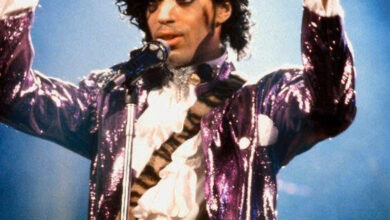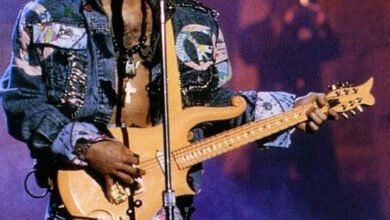Mastering the Art of Subtlety: Cillian Murphy’s Unique Approach to Emotional Depth in Acting
OPINION: This article may contain commentary which reflects the author's opinion.
Cillian Murphy has built a reputation as one of the most intriguing actors of his generation, largely due to his ability to convey emotional depth through subtlety. With a career that spans across both independent films and blockbuster hits, Murphy’s nuanced performances stand out for their restrained power. Rather than relying on grand gestures or over-the-top displays of emotion, Murphy has mastered the art of saying more with less—a skill that has captivated audiences worldwide.
The Power of Minimalism
At the heart of Murphy’s approach to acting is his belief in minimalism. He often strips away any excess in his performances, leaving just enough to allow the audience to interpret his character’s inner world. In an industry where larger-than-life performances often steal the spotlight, Murphy’s understated style offers a refreshing contrast. His quiet intensity draws viewers in, inviting them to read between the lines.
Take, for example, his portrayal of Thomas Shelby in Peaky Blinders. Shelby is a character riddled with trauma, ambition, and inner conflict, yet Murphy’s performance is restrained. His delivery is often controlled, his emotions bubbling just below the surface. Instead of overt displays of anger or sadness, Murphy conveys his character’s depth through a piercing gaze or the slight clenching of his jaw. It’s a performance that speaks volumes without saying much at all.
Listening as a Form of Expression
Murphy has often spoken about the importance of listening in acting. For him, listening is not just about reacting to a scene partner’s lines but about truly being present in the moment. This is evident in his performances, where his characters seem to absorb the weight of the world around them. His ability to listen on screen makes his reactions feel authentic, giving the audience a sense of emotional resonance that lingers long after the scene ends.
In Inception, for instance, Murphy plays Robert Fischer, a character grappling with the weight of his father’s legacy. His performance in the pivotal scene with his father’s deathbed confession is a masterclass in subtlety. Murphy listens intently, his face a mixture of disbelief, pain, and resolution. It’s a quiet moment, but one that is emotionally charged, thanks to Murphy’s ability to internalize the scene’s gravity.
Collaborating with Directors Who Value Subtlety
Murphy’s unique approach to emotional depth often aligns with directors who appreciate the power of subtle performances. His collaborations with Christopher Nolan have allowed him to explore characters with complex emotional landscapes. Nolan, known for his cerebral storytelling, often crafts characters who exist in morally ambiguous spaces, and Murphy excels in bringing those characters to life.
In Dunkirk, Murphy plays a shell-shocked soldier grappling with the horrors of war. His character’s trauma is expressed not through grand monologues but through small, almost imperceptible actions—a tremble in his hands, a distant look in his eyes. Murphy’s portrayal of a man broken by war is haunting in its simplicity, making his character’s pain all the more relatable.
Embracing Vulnerability
While many actors choose to portray strength through physicality or bravado, Murphy often taps into the vulnerability of his characters. His willingness to expose their weaknesses makes them feel more human, and by extension, more relatable. Whether it’s a character overwhelmed by guilt or one wrestling with existential questions, Murphy imbues his roles with a sense of fragility that underscores their emotional depth.
In The Wind That Shakes the Barley, Murphy plays Damien O’Donovan, an Irish doctor turned revolutionary. The film chronicles his character’s journey from idealism to disillusionment, and Murphy captures this transformation with heartbreaking subtlety. His portrayal of a man torn between loyalty to his family and the harsh realities of war is a testament to his ability to convey complex emotions without ever resorting to melodrama.
The Subtle Impact of Physicality
Murphy’s physicality in acting is another aspect of his subtlety. He often uses his body language to communicate what his characters are feeling, whether it’s through a stillness that conveys control or a slight shift in posture that reveals tension. This attention to detail allows him to embody characters fully, making their emotions feel tangible even when they aren’t being explicitly expressed.
His performance in A Quiet Place Part II as Emmett, a man hardened by loss, exemplifies this. Murphy uses physical restraint to convey Emmett’s emotional distance, his body language closed off and guarded. As the film progresses and Emmett opens up to the family he helps, Murphy subtly adjusts his physicality, softening his posture and facial expressions to reflect his character’s growing attachment.
Conclusion
Cillian Murphy’s ability to evoke emotional depth through subtlety sets him apart as an actor. His performances are a study in restraint, demonstrating that sometimes the most powerful emotions are the ones left unspoken. By embracing minimalism, listening with intent, and finding strength in vulnerability, Murphy has redefined what it means to convey complex emotions on screen. In an industry that often values spectacle, Cillian Murphy proves that the art of subtlety can be just as compelling, if not more so.



